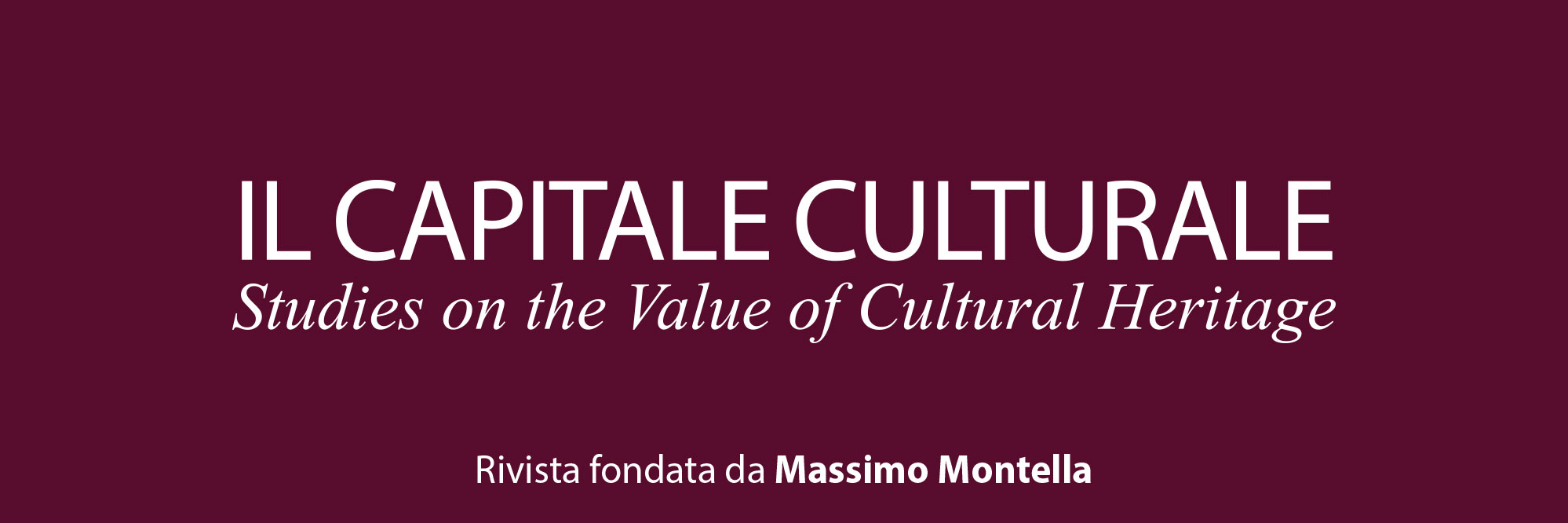Collective and individual identities in an era of co-creation: a workshop
Downloads
Pubblicato
Fascicolo
Sezione
Licenza
Tutti i materiali pubblicati sono coperti da copyright, mantenuto dall'Università di Macerata che ne supporta finanziariamente e tecnicamente la pubblicazione.
La licenza adottata è la Creative Commons - Attribuzione/Condividi allo stesso modo. Ovvero, gli autori che pubblicano su questa rivista accettano le seguenti condizioni:
- Gli autori mantengono i diritti sulla loro opera e cedono alla rivista il diritto di prima pubblicazione dell'opera, contemporaneamente licenziata sotto una Licenza Creative Commons - Attribuzione che permette ad altri di condividere l'opera indicando la paternità intellettuale e la prima pubblicazione su questa rivista.
- Gli autori possono aderire ad altri accordi di licenza non esclusiva per la distribuzione della versione dell'opera pubblicata (es. depositarla in un archivio istituzionale o pubblicarla in una monografia), a patto di indicare che la prima pubblicazione è avvenuta su questa rivista.
- Gli autori possono diffondere la loro opera online (es. in repository istituzionali o nel loro sito web) prima e durante il processo di submission, poiché può portare a scambi produttivi e aumentare le citazioni dell'opera pubblicata.
DOI:
https://doi.org/10.13138/2039-2362/3141Abstract
This chapter describes a workshop developed as part of an effort by a European group of pedagogues, who developed insights and tools for supporting creatives to form a more powerful digital narrative of their often-fragmented career stories. Thus, the group explored and developed digital storytelling tools, media and online tools, autobiographical practices, design thinking, and embodied practices for identity formation. As part of the latter, this chapter is about a workshop that considers individual and collective identity formation for creating more powerful and holistic digital career stories that balance our individual nature with a more collective understanding of ourselves as human beings. A separate chapter about the conceptual framework underpinning this workshop can be viewed in this toolkit. Artists have a long historic tradition of forming collectives and co-creative processes. However, in a world that has emphasised individual endeavours and individualism as the highest concept associated with freedom, they have not always received positive value judgements. Thus, current neoliberal tendencies to elevate the individually identifiable creators established a perceived meritocratic society of individual power and choice. But the multiple current crises in governance, society, environment and economy suggest a dead-end of this trajectory. Perhaps, as a result, current discourses of more collective, cooperative and collaborative endeavours are on the rise in the art sector as in others. Thus, the concepts around Culture 3.0 are worthy of being highlighted, as in the absence of this phenomenon of Culture 3.0, authors and creative professionals have often needed to resort to other terms, such as “community arts”, “socially engaged arts”, “participatory arts”, “non-traditional arts”. But these terms are often associated with value judgments in themselves.
Riferimenti bibliografici
ACE (2020), Our Strategy 2020-2030, Arts Council England, https://www.artscouncil.org.uk/publication/our-strategy-2020-2030, 17.02.2022.
Boehm C. (2016), Academia in Culture 3.0: a Crime story of Death and Rebirth (but also of Curation, Innovation and Sector Mash-ups), «REPERTÓRIO: Teatro & Dança», 19, n. 2, pp. 37-48.
Boehm C. (2019), The end of a Golden Era of British Music? Exploration of educational gaps in the current UK creative industry strategy, in Innovation In Music: performance, production, technology and business, edited by R. Hepworth-Sawyer, J. Hodgson, J. Paterson, R. Toulson, New York-London: Routlege, pp. 494-511.
Boehm C. (2023), Collective and individual identities in an era of cultural co-creation, «Il capitale culturale. Studies on the Value of Cultural Heritage», Supplementi, n. 14, pp. 69-82.
Callery D. (2001), Through the Body: A Practical Guide to Physical Theatre, New York-London: Routledge.
International Centre of Art for Social Change (n.d.), What is Art for Social Change?, https://icasc.ca/what-is-art-for-social-change/, 17.02.2022.
Sacco P.L. (2011), Culture 3.0: A new perspective for the EU 2014-2020 structural funds programming, European Expert Network on Culture (EENC), https://www.interarts.net/descargas/interarts2577.pdf, 17.02.2022
Weintraub L. (2003), Making Contemporary Art: How Today’s Artists think and work, User Manual Addendum, London: Thames & Hudson.




